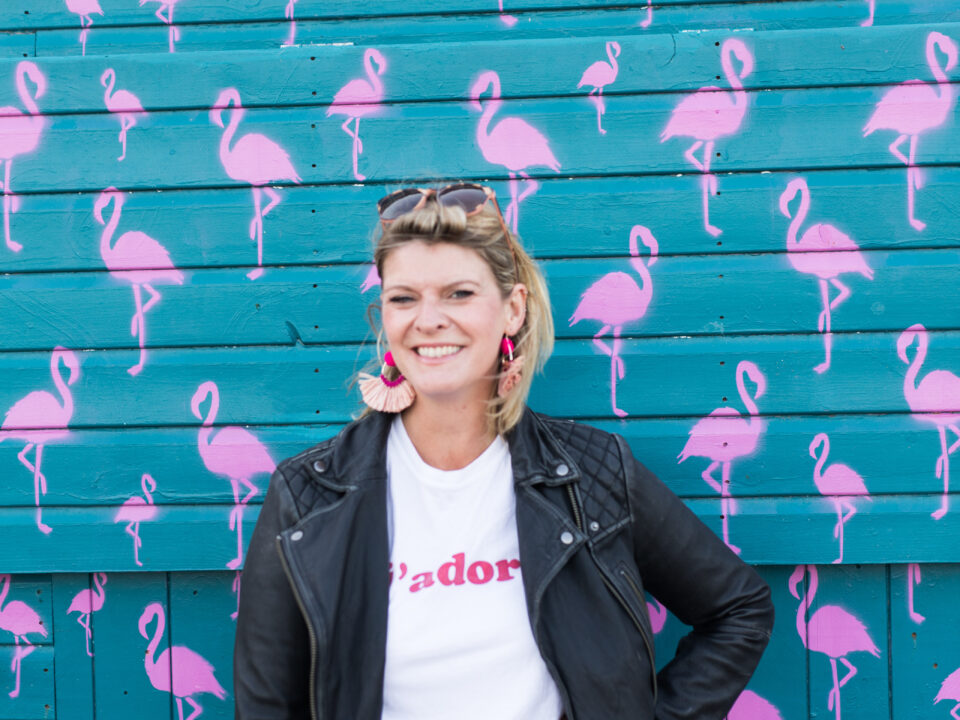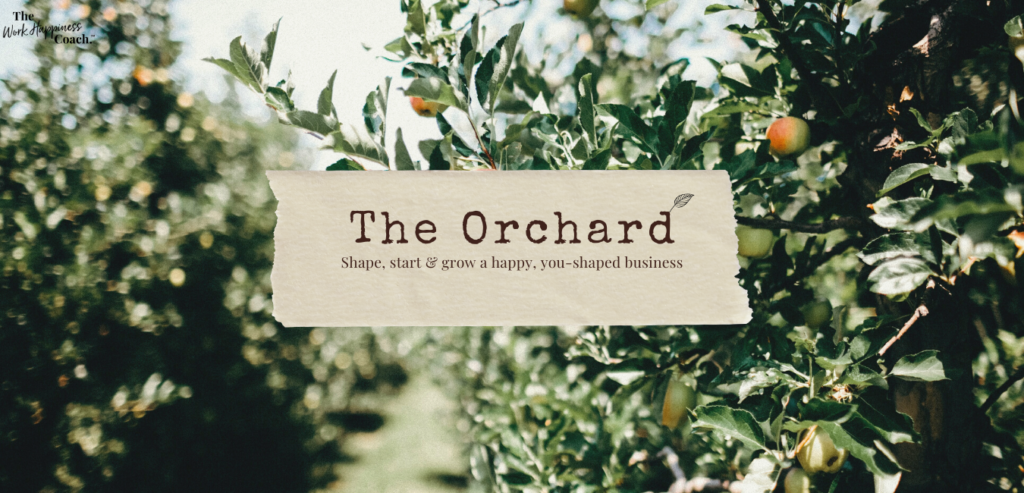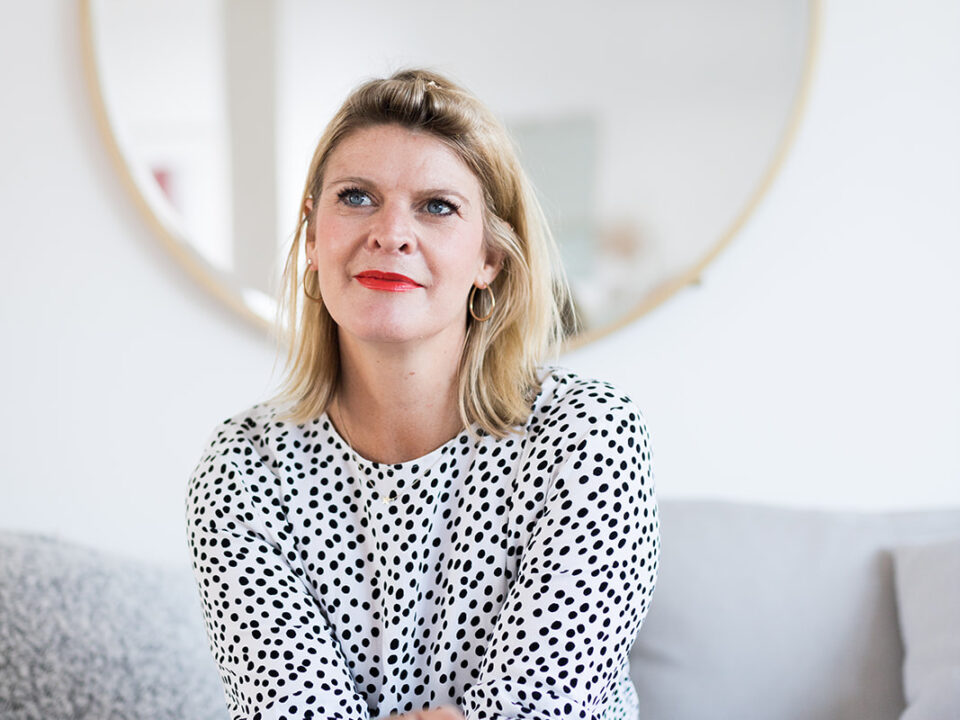This article is for you if the thought of self-promotion is holding you back from either starting a business or putting yourself out there in your existing business.
One of the most important skills you’ll have to hone as a founder is self-promotion.
Gulp.
I know, I know.
But bear with me.
It really doesn’t have to feel ick-inducing .
Here are my 3 top tips on getting (more) comfortable with it.
1. Reframe the ick
One of the biggest hurdles you have to overcome as a new business owner is the idea that selling yourself or promoting your offers is arrogant.
Am I right?
But if you can’t confidently and clearly articulate how you can help your prospective clients, how will they ever understand how you could help them?
And I know you’re in the business of helping people as well as making a living.
You’d actually be doing them a disservice by not sharing how you could help them.
2. Mine your super powers
You are your super powers. Those things that make you uniquely you.
Your USPs (Unique Selling Points) if we’re getting all corporate speak about it.
Your superpowers are made up of your unique personality traits, strengths, gifts, values, beliefs, skills, knowledge, work and life experiences.
Nobody does it better. (Baby you’re the best)
Your ideal clients know what they are and will tell you in their testimonials.
3. Look for patterns
Next time a lovely client or colleague leaves you a LinkedIn recommendation or gives you a testimonial, look for the recurring themes, patterns and words.
- What vocabulary do they use?
- How do they describe your value?
- What transformation have they experienced?
Not only are these words such a lovely confidence boost, but they give you a whole host of new adjectives you can use in your content, copy and discovery calls.
See if you can get the gist of how I help from these kind words from my wonderful clients.
Why not try it for yourself?
Please do let me know how you get on.
- What patterns do you notice about your own superpowers?
- What transformations do you help your clients achieve, if you already have your own service-based business?
- How could you weave these USPs into your marketing and, aherm, dare I say it, ‘self-promotion’ activities?
Feel free to drop me a line or send me a DM on instagram to share what patterns you’ve noticed. I’d love to know.
What’s real reason you’re not starting the business you’ve always dreamed of?
I’ve been loving chatting to all the incredible future female founders who booked a discovery call with me this month. Plus these calls are always such a good source of inspiration for my newsletters and social media posts. (pro tip!)
This time, they’ve highlighted what seems to be the biggest blocker for women starting their own business.
There were a few contenders.
A lack of time. A lack of money. A lack of ideas. A lack of understanding of ‘how to do it’.
The winner?
A lack of confidence.
99% of the women I speak to who are considering leaving their 9-5 or freelance careers, are staying stuck doing work that makes them miserable because of a lack of confidence.
Maybe it’s it your biggest blocker too?
It definitely was mine. I couldn’t fathom why anyone would want to actually pay me to help them with their return to work. (and I then went on to match my old Head of Talent corporate salary doing it!)
Confidence gremlins come in all shapes and sizes.
Here are the top 3 types I see most often:
- A lack of confidence that anyone will want buy ‘your thing’
- A lack of confidence in your own abilities
- A lack of confidence in selling and marketing yourself
Let’s take each one in turn and try to put them back in their boxes…
- A lack of confidence that anyone will buy ‘your thing’
If you’re keen to become a purpose-led founder, i.e your business ‘why’ comes straight from your heart and soul; it really matters. You BELIEVE in its value in the world. (If you don’t, I’d question if it’s the right thing.)
Chances are, your business idea is going to CHANGE LIVES in some way or another. Your people will pay for the transformation if it’s compelling enough and if it solves a problem they have.
If you would have paid for the thing you want to offer, then other people will too. (I wish I’d have paid to fast-track shaping my own business back in 2018!)
It’s simply a matter of drawing those people to you with your magnetic messaging, showing empathy for their problem and pricing your service in line with the value of the transformation you’re offering.
Check out my article about why purpose-led businesses are THE best type of businesses to start.
- A lack of confidence in your own abilities
When you put yourself out there, there has to be a tiny part of you that believes you know your stuff and that you can actually help your dream client achieve their goals.
Yes, this self-belief will often be fleeting at first (you can work on that) but as long as you have a base level of skills, knowledge, talent and passion, that’s all you need to start.
Your confidence will grow when you start to help your clients generate the results. It’s validation, evidence and proof to your inner critic that you’re more than capable.
I remember so clearly the day I received my first ever testimonial. It’s the day I realised it was all worth it.
To take that first step, all you need is a glimmer of belief.
Scour your Linkedin recommendations or appraisal feedback for evidence of your brilliance if you need to spark that self-belief.
Remember, you only need to know a little bit more than the person you want to help for you to be able to add value to their life. You’ve totally got this.
- A lack of confidence in selling and marketing yourself
When you work for a big brand and you have to sell their product or service, it doesn’t feel half as terrifying as selling your own thing!
You’re effectively selling yourself. It’s so personal. It even activates a different region of your brain, your amygdala. The fear of rejection is real.
Your identity and self-worth feels caught up in whether or not someone will buy your thing. It can feel like if they don’t buy your thing, they’re rejecting YOU.
And for anyone who ever felt left out at school, that pain is real. So you ‘stay safe’ and don’t put yourself out there. You stay stuck and don’t start your business.
But learning to release attachment to the outcome and whether anyone buys your thing or not is a really important skill to learn. No one likes a desperate sales pitch after all.
The other important reframe is remembering that sales and marketing is simply you explaining how your thing could help them. It’s simply good communication.
Whether you’re a teacher or an L&D professional, you’re basically ‘selling’ concepts and transformations every day. If you’re a director on a senior management team, you’re ‘selling’ strategies and ideas every day to your team and board.
Do any of these confidence blockers resonate with you?
If so, I’d love to know which one.
Drop me a line or send me a DM on instagram. Tell me I’m not alone!
Going freelance is a common stepping stone out of the corporate world. In fact, it was the exact path I took myself. And it worked out really well for the 3 months I did it for.
The promise of freedom, flexibility, autonomy and ‘working on your terms’ is a huge lure of going freelance!
But the reality can often feel less than alluring when you end up:
– Selling your time for money
– Working with misaligned clients
– Giving away your valuable IP
– Having little influence over the process or project
– Becoming a faceless freelancer wfh
– Receiving very little (if any) recognition for your contribution
– Relinquishing the relationship with your end client
– Giving up 20%+ of your day rate to agencies
– Compromising on your work life balance boundaries
– Doing meaningless work so you can pay the bills
– Feeling like ‘just another cog in a corporate wheel’
I could go on…
But starting your own purpose-led business and ‘going it alone’ can feel utterly terrifying because so much is out of your comfort zone;
– You have to get clear on your why, mission, purpose and brand story
– You have to identify those dreamy clients whose problems you want to solve
– You have to package your uniqueness into value-adding products and services that people will actually want to buy
– You have to reinvent yourself and build a new personal brand
– You have to get visible and ‘sell’ yourself and your value to perfect strangers
And perhaps most importantly, you really have to BELIEVE in yourself and the value of what you’re offering to the world.
Because if you don’t believe in your own value, why will anyone else?
If this transition from employee/freelancer to founder mindset is something you’d like a hand with, I have an intimate, nature-inspired future founder container called The Orchard
Click the button below for more information.
If I can find work happiness, so can you.
Feeling safe, happy and fulfilled in your work life is not a nice to have.

















